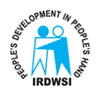DST CORE
Introduction
Integrated Rural Development of Weaker Sections in India or its acronym WIDA has been involved in minimizing rural poverty through various mode of development channels. The main activities of the organization's are confined within the Adivasi belt of Koraput District, Orissa. One of the pivotal tools flaunt in eliminating the poverty-stricken region is the application of Science and Technology.
Under the Core Support assistance of the Department of Science and Technology (DST), New Delhi, IRDWSI received support for the last 5 years (1 995-200b). The five years tenure of the project has been accomplished by the end of March 2000. In continuation of the activities adopted in 1995-99, and after an Expert Committee's visit, the DST Core Team initiated the following activities in Koraput District:
- Sericulture Programme
- Natural Dyes Programme Sustainable Agriculture Programme
- Aqua-culture Programme
- Skills training & Production units
- Decentralized Energy Options - Mini Hydro Power Project and Solar demonstration and feasibility study
- Information Technology-Computer Training Centre
Objectives Of The Core Team
The DST Core Team Initiated the Following Programmes
Other Programmes
Apart from the programmes, the project staff attended DST - Expert Committee Meeting held at IRDWSI campus.
It is a well known fact that in today's, world, computer is effecting every day-to-day life of a Person either directly or indirectly. In the era of Information technology a Person can hardly make both ends meet or survive with dignity unless he or she is computer savvy.
In our country as a result of social injustice and pervading economic discrepancies, the weaker sections in the rural belt hardly get the chance to avail the advent of computer knowledge that is spreading in every nook and corner of the country like a wild fire. 0nly few talented persons and from sound economic background could meet the cost of the high tuition fees.
As a result of such inequalities, large chunk of rural talent remains unutilized and underutilized from generation to generation, leaving them with no choice, except to be born in poverty, live in poverty and die in poverty. Worst of all, such deprivation Profoundly deteriorates their economic woes, enhance their social subjugation and undermine their Political marginalisation.
Thus, taking into account the precarious conditions, long term perspective of the need to ameliorate their condition and the present need of the hour is to extend the sphere of computer knowledge into the interior habitation.
Future Programmes of IRDWSI
Comprehensive study on 5% model is to be made so that farmers can make use of the simple water harvesting technology. Since this technology is cost effective and also requires less labour, farmers can work by themselves without depending on the help of others. This technology can end up as a very welcoming technology in the future, ff proper care is taken to dwell into the technical aspects. As water scarcity is already prevailing in India this would help the farmers to help themselves in the management of water systems and conserving water for agricultural purposes. Another proposal has been made for study and access to safe drinking water in the Adivasis villages. Most of the hardship faced by them can be attributed to lack of safe drinking water facilities. Such situation makes them vulnerable to fatal water borne diseases and directly or indirectly knocks off their economic status. Therefore, it is a hope that this study would bring out the hidden facts and would also help in the development of appropriate technology to secure the basic needs of the Adivasi communities.
Moreover, the work on natural dyes will be sustained to consummate stiffen colors from natural dyes. A per the suggestion of Expert Committee Ten dye materials were frozen and the publication work is underway. A low cost solar charging light developed by the core team still needs to be perfected so that it could be used for literacy programme and as an alternative for kerosene lamp. Such system can be inducted in the village only after imparting adequate training to the village youth. Though demonstration system had been already developed, a charger controller, to be attached, to maintain constant battery charge is yet to be scrutinized. For this purpose a solar battery charging Station is to be established in the remote areas where government grid does not reach. Such facilities would help the people to charge their batteries for PAS, stereo and current by paying a fixed amount. Even it can be utilized as a source of, income generation activities. Another work that is to be taken up is the construction of check dams, one each in Putsil and Jhimkiguda village. The purpose is to increase the productivity of agricultural farms. The construction of a check dams will ensure and stabilize the flow of water current in the confine area. A detail study on Water use patterns were carried out and a brief report will be shared in the next year.
Conclusion
We thank Government of India DST and the members of DST for their continued support to DST Core group through which we are able to reach the interior pockets Adivasi regions in the district of Koraput, Orissa. The DST Core Staff were involved in materialising the following programmes:
| 1. | Preparation and submission of Second Phase Integrated Bonda Development proposal to DST |
| 2. | Preparation and submission of Sanitation and Water Development Project in Barokutni to DST |
| 3. | Preparation of UNDP and WFP Projects on Food Security and Education submitted to UNDP and WFP |
| 4. | Documentation on Ten Natural Dye Technology for Publication |
| 5. | Preparation of Mini Hydro follow up proposal |
| 6. | Preparation of Alternative approaches to Shifting Cultivation a Project |
| 7. | Coordination of Information Sericulture, Natural Dyes, Aqua Culture, Sustainable Agriculture, Decentralized Energy Options and Information technology |

